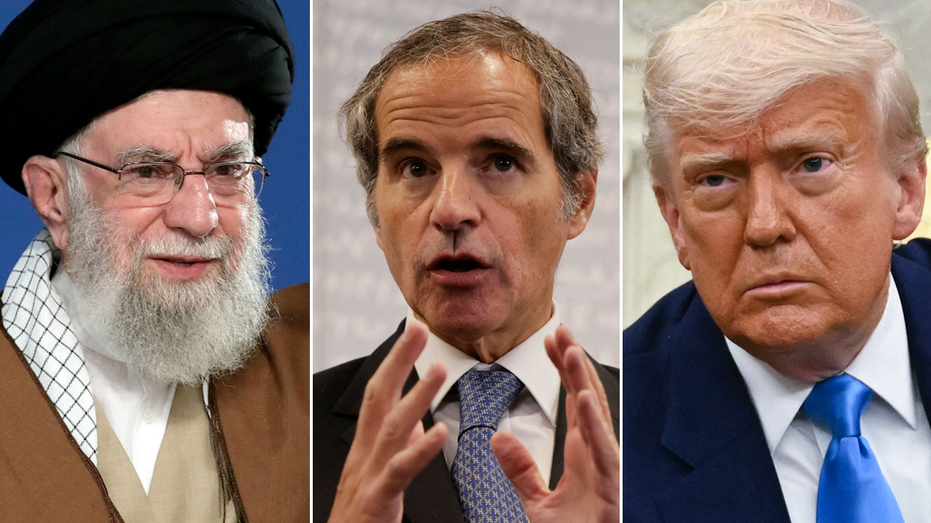Trump Rejects Iran's Counter-Proposal in Nuclear Talks: "It's Just Not Acceptable"
Trump and Netanyahu hold talks on Iran, as UN alarms grow over Tehran's nuclear ambitions.

President Donald Trump confirmed on Monday that he held a phone conversation with Israeli Prime Minister Benjamin Netanyahu, discussing the tense regional dynamics surrounding Iran and the ongoing nuclear negotiations. Following the call, Trump emphasized to reporters Washington’s commitment to pursuing a diplomatic solution in order to avoid direct conflict in the volatile region.
"We're trying to make a deal so that there's no destruction and death. And we've told them that, and I've told them that, and I hope that's the way it works out," Trump stated. However, he quickly acknowledged the fragility of the situation, adding, "But it might not work out that way. We'll soon find out."
Trump revealed that Iran has already issued a counter-proposal after rejecting an earlier U.S. initiative last week, but stressed that the latest Iranian response "is just not acceptable." He cited ongoing disputes over enrichment demands as a major sticking point, indicating that more rounds of negotiation would be necessary before any agreement could be reached. The president's comments come amid intensified scrutiny of Iran's nuclear ambitions from both Washington and its Middle Eastern allies.
The diplomatic exchange unfolded hours after the United Nation’s nuclear watchdog sounded fresh alarms. The International Atomic Energy Agency (IAEA) warned it cannot verify whether Tehran's nuclear program is wholly peaceful, raising new concerns about the regime’s intentions. On Monday, IAEA Director General Rafael Grossi flagged that inspectors have been denied access to several Iranian nuclear sites, and accused Iran of attempting to sanitize these locations, an apparent effort to cover up sensitive activities.
In 2020, the IAEA uncovered man-made enriched uranium particles at three sites—Varamin, Marivan, and Turquzabad—previously associated with Iran’s nuclear program. Despite repeated inquiries by the agency, Grossi said, "Iran has repeatedly either not answered, or not provided technically credible answers" to questions about the origin and purpose of these nuclear materials. The Iranian attempts to ‘scrub’ these facilities have further obstructed verification efforts, Grossi added.
The IAEA has not been formally involved in the direct nuclear negotiations between Washington and Tehran, but Grossi said he remains "closely and intensively" engaged in support of the ongoing bilateral talks. Nevertheless, the tensions are mounting in the background of a report released last month, which found that Iran has increased its stockpile of near-weapons-grade enriched uranium by nearly 35% in just three months.
By May 17th, inspectors determined that Tehran amassed approximately 408.6 kilograms (900.8 pounds) of uranium enriched to 60 percent purity—a quantity experts say puts the regime just one technical step away from enough material for as many as ten nuclear warheads. This escalation comes even as Iranian Supreme Leader Ayatollah Ali Khamenei last week forcefully rejected a U.S. proposal for a complete halt to its nuclear enrichment, calling such demands "100% against" the country's interests. Details of the American offer remain unclear, including what terms were presented regarding sanctions and enrichment limits.
The White House continues to withhold specifics about the negotiations. According to some accounts, Trump has given Iran a deadline of June 11 to reach a deal, though these claims have not been independently verified. The atmosphere remains fraught as, on Monday, Iranian Foreign Ministry spokesperson Esmaeil Baghaei declared that the U.S. proposal was "not acceptable" and did not align with prior negotiations. He said Iran would issue its own revised proposal "via Oman after it is finalized," describing their approach as "reasonable, logical, and balanced."
Diplomats and observers now await Iran’s next move. Some reports suggest Tehran’s official response could come as early as June 10, yet Iranian officials have declined to confirm any timeline. With time running out and tensions rising, the outcome of this high-stakes standoff could have profound implications for regional security and the global nonproliferation regime.




